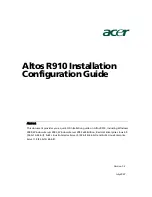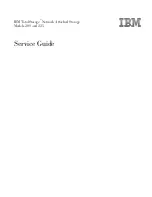
EDS1100/2100 Device Server User Guide
100
12: Modbus
Modbus ASCII/RTU based serial slave devices can be connected via the Ethernet through an
existing Modbus TCP/IP network. Any device having access to a given Modbus implementation
will be able to perform full range of operations that the implementation supports. Modbus/TCP
uses a reserved TCP port of 502 and includes a single byte function code (1=255) preceded by a
6 byte header:
Table 12-1 6 Byte Header of Modbus Application Protocol
Note:
Reference the Modbus Protocol User Guide for additional information. Lantronix
documentation is available at
www.lantronix.com/support/documentation
.)
Serial Transmission Mode
Evolution OS® products can be set up to communicate on standard Modbus networks using either
RTU or ASCII. Users select the desired mode and serial port communication parameters (baud
rate, parity mode, etc) when in the line configuration options.
Table 12-2 Modbus Transmission Modes
The Modbus web pages allow you to check Modbus status and make configuration changes. This
chapter contains the following sections:
Transaction ID (2 bytes)
Identification of request/response transaction - copied by slave
Protocol ID (2 bytes)
0 - Modbus protocol
Length (2 bytes)
Number of following bytes includes the unit identifier
Address (1 byte)
Identification of remove slave
RTU
ASCII
Address: 8 bits (0 to 247 decimal, 0 is used for broadcast)
Function: 8 bits (1 to 255, 0 is not valid)
Data: N X 8 bits (N=0 to 252 bytes)
CRC Check: 16 bits
Address: 2 CHARS
Function: 2 CHARS
Data: N CHARS (N=0 to 252 CHARS)
LRC Check: 2 CHARS















































